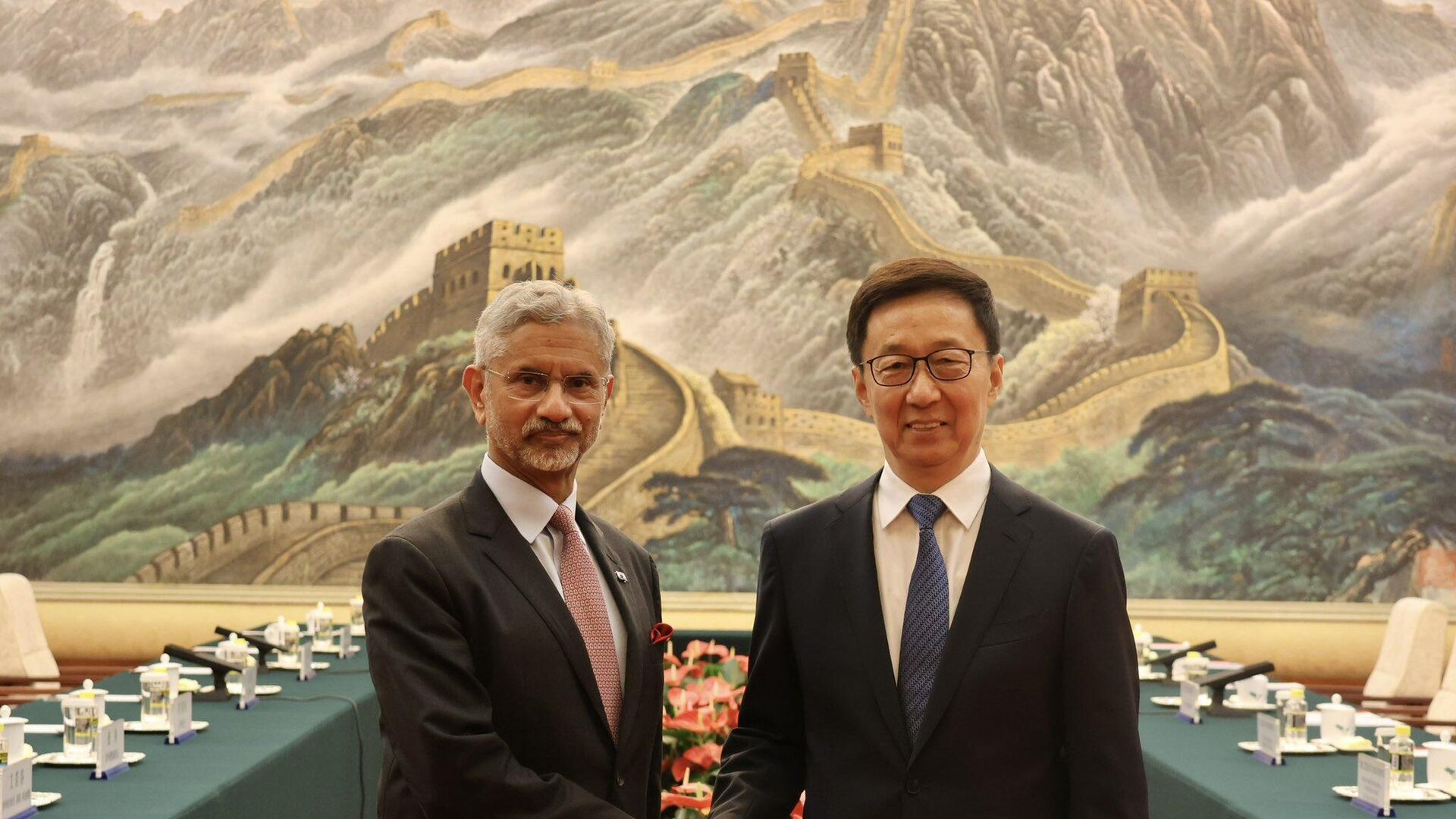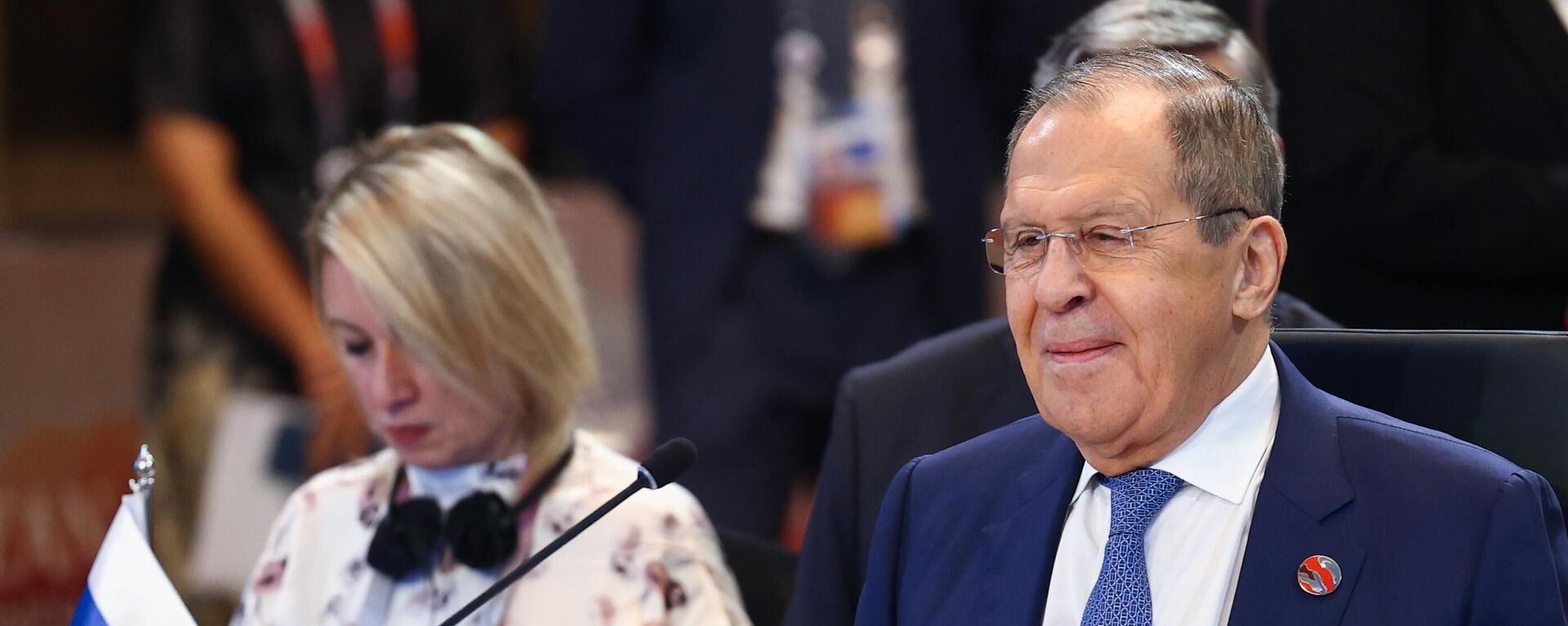India, China Should Work Towards De-escalation at the Border: Jaishankar
11:31 14.07.2025 (Updated: 17:09 14.07.2025)

© Photo : X/@DrSJaishankar
Subscribe
External Affairs Minister S Jaishankar is on a two-day official visit to China to meet his Chinese counterparts and attend the Shanghai Cooperation Organisation (SCO) Council of Foreign Ministers (CFM) Meeting in Tianjin.
In his first visit to China since 2019, External Affairs Minister (EAM) S Jaishankar called for taking a "far-seeing approach" to the Sino-India ties, including taking measures aimed at "de-escalation" as a follow-up to the 21 October disengagement pact in the Eastern Ladakh Region.
"Since our leaders’ meeting in Kazan in October 2024, the India-China relationship has been gradually moving in a positive direction. Our responsibility is to maintain that momentum," Jaishhankar told the Chinese Foreign Minister Wang Yi during their meeting in Beijing on Monday.
The breakthrough meeting between Prime Minister Narendra Modi and President Xi Jinping on the margins of the BRICS Summit in Kazan last October came on the heels of disengagement pact in the Eastern Ladakh region, paving the way for the resolution of the over-four year old border row.
Recalling their recent meetings on the sidelines of international events to enhance strategic communication, Jaishankar expressed hope that such call-ons would be a common occurrence in coming weeks and months.
Jaishankar credited the "good progress" in Sino-India ties to the resolution of friction along the border and the ability of both sides in maintaining peace and tranquility, according to an Indian readout.
"This is the fundamental basis for mutual strategic trust and for smooth development of bilateral relations. It is now incumbent on us to address other aspects related to the border, including de-escalation," India's top diplomat told his Chinese counterpart.
Further, the Indian minister batted for normalising people-to-people exchanges as well as avoiding "restrictive trade measures" in bilateral economic ties.
Jaishankar also said that the resumption of the Kailash Mansarovar Yatra, a Hindu pilgrimage in the Tibet region, this year is being widely appreciated in India. The pilgrimage remained in a suspended state since 2019, first due to the Covid pandemic and then the Ladakh standoff.
In a meeting with Chinese Vice-President Han Zheng earlier in the day, Jaishankar said that the “continued normalisation” of ties between the two neighbours could lead to “mutually beneficial outcomes”.
“The international situation, as we meet today, Excellency, is very complex. As neighboring nations and major economies, an open exchange of views and perspectives between India and China is very important,” Jaishankar said in his opening remarks. The Indian EAM's visit to China is taking place against the backdrop of the US tariff threats, the persisting geopolitical divide as well as recent tensions in the Middle-East and South Asia.
“I am confident that my discussions in this visit will maintain that positive trajectory,” the top diplomat said.
In his meetings with Wang and Han, Jaishankar expressed India's support for a successful Chinese Presidency of the SCO, which would culminate in the 25th Heads of State Council meeting in Tianjin.
For his part, the Chinese Vice President told the Indian Minister that India and China should work together to enable each other's success and achieve the "dragon-elephant tango", Global Times reported.
Han noted that both the Asian economies were major developing nations and important members of the Global South comity of nations.
"The two sides should further implement the important consensus reached by leaders of the two countries, steadily advance practical cooperation, respect each other's concerns, and promote the sustained, healthy, and stable development of China-India ties," Han was quoted as telling Jaishankar during the meeting.
On Monday, Jaishankar also met the SCO Secretary-General Nurlan Yermekbayev, discussing the contribution and importance of the Eurasian grouping as well efforts to "modernise" its working, according to the Indian top diplomat.


